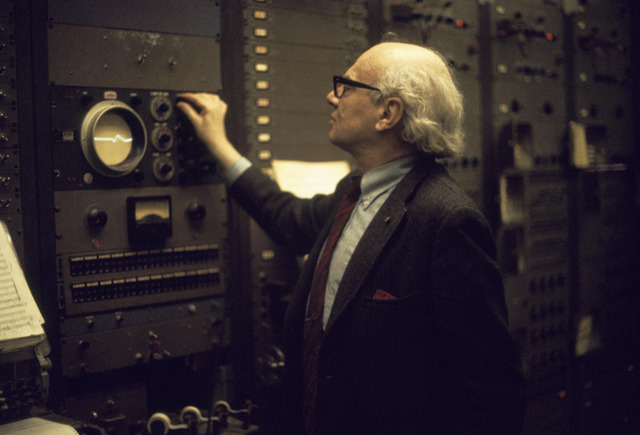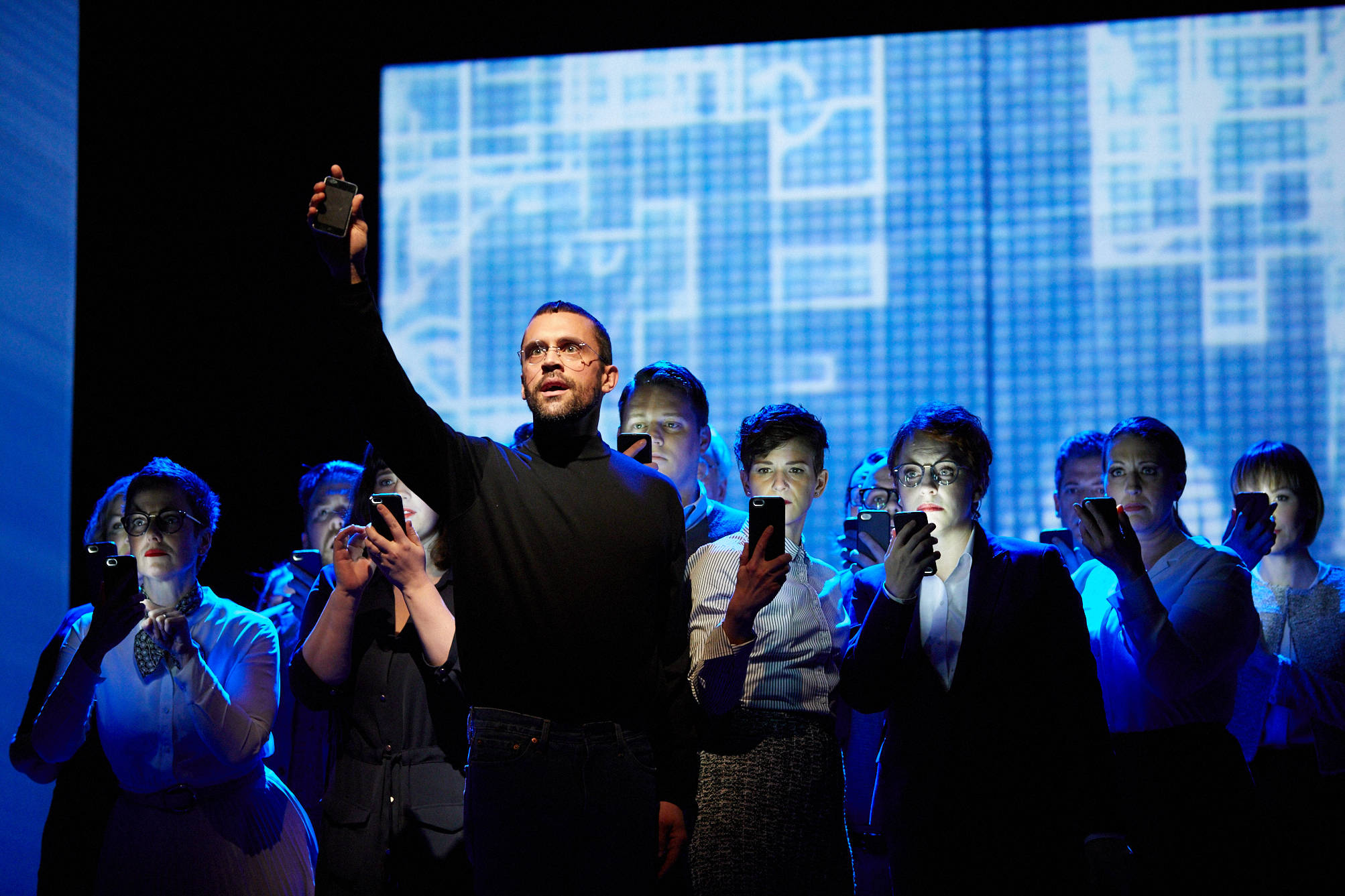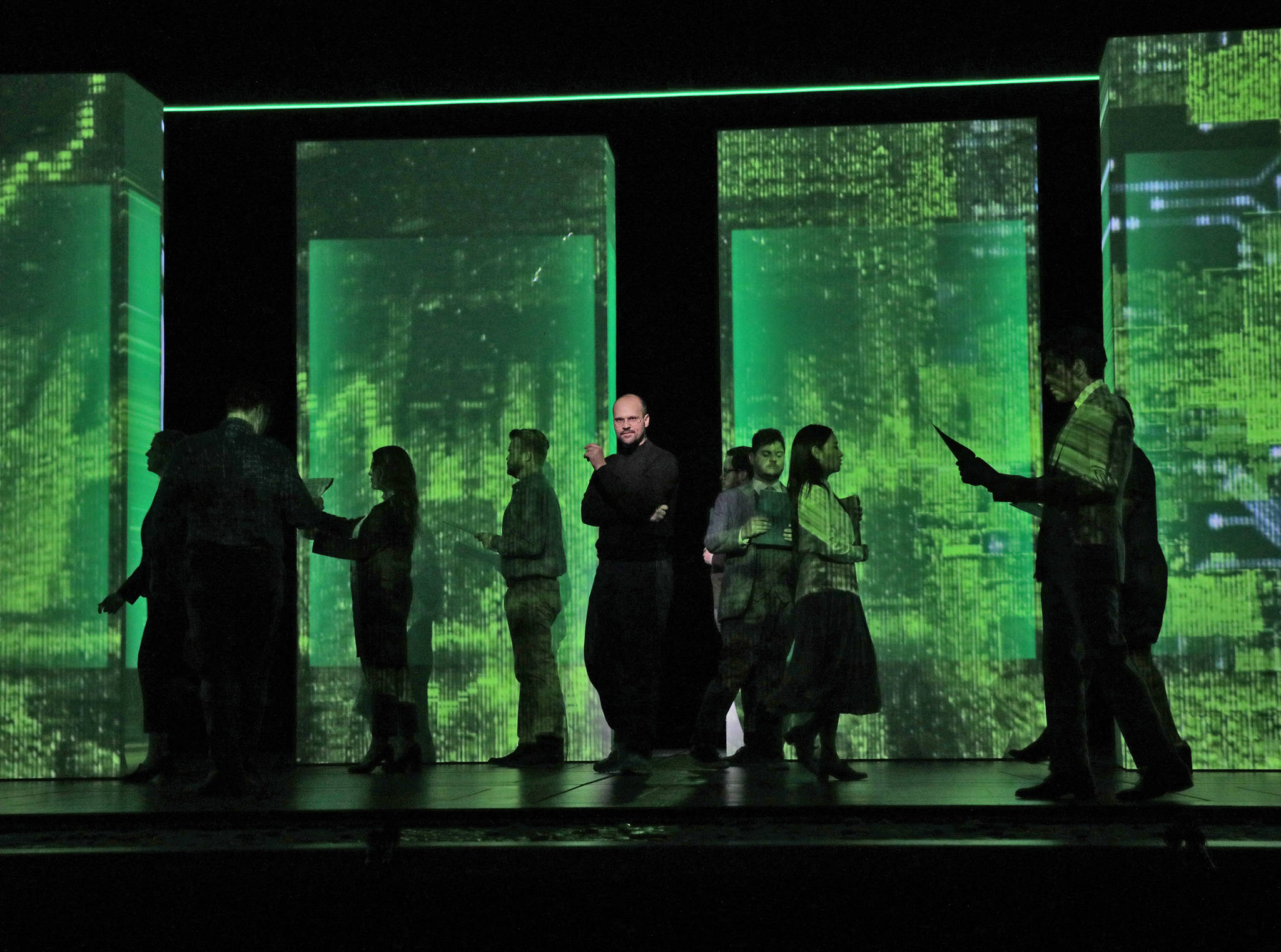It was clickbait before its time. In 1958 composer Milton Babbitt submitted a thinkpiece to High Fidelity magazine under the benign title “The Composer as Specialist,” but an editor changed it to the more belligerent “Who Cares if You Listen?”, starting a firestorm whose embers still glow. Then a professor at Princeton, Babbitt asked, in measured terms, if composers in the vanguard of musical exploration were writing music too arcane for wide appeal—then why seek it? Wouldn’t academia and its sympathetic ears be the natural home for aesthetic research, as it is for the sciences?
The notion that the art-maker need not be beholden to the mass public infuriated readers. Across a millennium of Western notated music, composers had never not been the servant of some institution: the church, the court, or the common man with disposable income. Some argued that widening the rift between classical music and a broad audience meant its death; others argued it had never been a mass art form anyway. Some advocated for absolute freedom for the artist, others that seeing art in terms of scientific endeavor could lead only to meaninglessness.
Babbitt, unrepentant and uncompromising, simply continued to compose until his death in 2011. His music overshadowed by his polemic, he earned a place in the history books, if not in the standard repertory. Which is one reason Eric Banks, conductor of The Esoterics (and himself a composer ever eager to probe new techniques and languages) chose Babbitt as the focus of the 36-voice choir’s concerts this weekend. Born May 10, 1916, he’s being honored with a birthday showcase of his complete a cappella choral works. “People aren’t ever going to hear this,” Banks says, citing the Seattle Modern Orchestra as the only other area group devoted to music at its most, yes, esoteric. “We don’t hear modernism in the concert hall anymore; we’re not even postmodern . . . [it’s] further from the social consciousness.”
But contrary to Babbitt’s forbidding reputation, there’s much here to grab the unprejudiced ear. Though his Three Cultivated Choruses (1987) avoid settling down in a key, individual short phrases often outline plain major and minor chords, bringing sonorousness and a moving (if momentary) sense of repose to their lyrics, elegies from the Italian renaissance. This avoidance of key is a result of Babbitt’s preference for serial techniques: deploying pitches not according to their function in establishing a tonal center, but by arranging them in groupings, or series, out of which a piece is built—layer upon layer or in a Tetris-esque mosaic.
Not only pitches can be arranged into series; so can note lengths, levels of loudness, or, as in Babbitt’s More phonemena (1978), even individual consonant and vowel sounds. Banks appreciates the constructivist gamesmanship of this approach: “A lot of this music is to me scripted play.” But, as with any compositional method, what counts is the result—the music’s ability to captivate and stimulate. Babbitt’s method did not rule out expressive text-painting in a traditional sense: In Glosses, his 1988 setting of Psalm 150—here receiving its world premiere—the music’s rhythmic spring and exuberance evocatively fit the word “alleluia.” (As Banks told his singers at a recent rehearsal, “That has been the mantra with Babbitt the entire time: The rhythms are harder.”) And as for social relevance, Banks asks a pointed question about Babbitt’s disdain for the easy answer: “What does it say about us psychologically when dissonance no longer has to resolve?”
If in general composers have since pulled back from Babbitt’s embrace of high abstraction, ironically, the times have never been more amenable to makers of the most abstruse sound-art. In 1958, you had essentially two options for hearing music, live performance or major-label recording, and composers uninterested in working within the confines of either were accused of turning their backs on listeners. But the power of technology and the reach of the Internet have unforeseeably exploded the ways music-maker and music-needer can come together. Musicians—whether a Princeton professor or a teenager in Ballard—now have total freedom to follow their ear and speak to kindred souls without having to choose between a popular following and no following. Today, any music that can be imagined can be found, and relished, by anyone else who cares to listen. E
gborchert@seattleweekly.com









